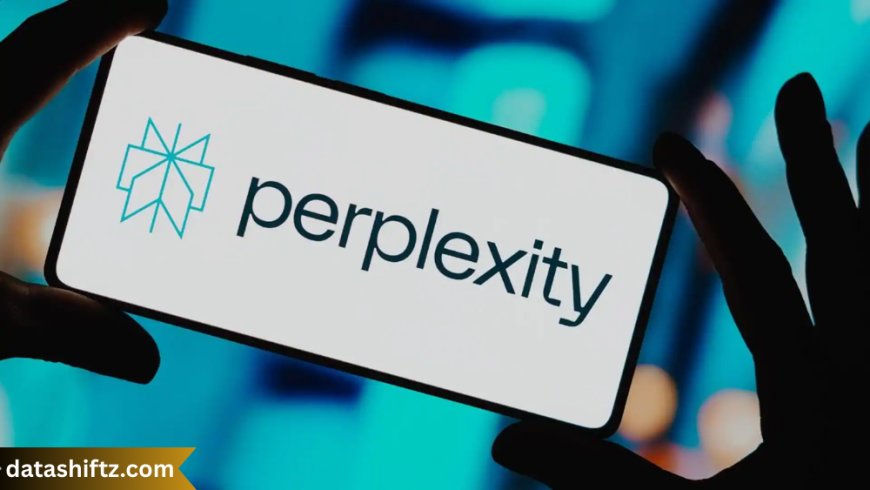Perplexity AI on Google Chrome: Redefining Browsing with AI

Introduction
Perplexity AI, founded in 2022, has quickly emerged as a standout in the AI-powered search landscape. With products spanning from conversational search to dashboards and citations, the company now looks beyond search—directly targeting browser integration. This pivot highlights two major developments:
-
The rise of Perplexity’s Chrome extensions—bringing AI-powered answers, summaries, and research tools directly into the browser workflow.
-
A bold $34.5 billion unsolicited bid to acquire Google Chrome—a move that signals ambition to disrupt the browsing ecosystem itself.
In this article, we'll explore how Perplexity AI integrates with Chrome, what motivated its audacious bid, and what it signals for the future of browser-based AI.
Perplexity AI: Evolution & Capabilities
Perplexity AI, Inc., based in San Francisco, offers a conversational AI search engine that delivers answers with real-time web sourcing and inline citations . It supports free and Pro tiers, with advanced AI models like GPT-4, Claude 3.5, and more . As of mid-2025, the company processes around 30 million queries per day .
Perplexity on Chrome: Extensions & AI in Your Tab
Perplexity offers Chrome extensions that seamlessly embed AI-driven research into users' browsing experience:
-
Perplexity – AI Companion: Provides instant page summarization, contextual understanding, and toolbar-based Q&A
-
Perplexity – AI Search: Lets you set Perplexity as your default search engine directly from Chrome’s address bar
Key Features:
| Feature | Description |
|---|---|
| Instant Summaries | Summarize any article or webpage at a glance |
| Quick Queries | Ask questions directly from the toolbar—no tab switching needed |
| Contextual Understanding | Delivers answers focused on the current page or domain |
| Shareable Results | Share responses with clickable links or citations |
| Follow-up Conversation | Maintain context with dynamic Q&A threads |
Perplexity’s Strategic Bid for Google Chrome
On August 12, 2025, Perplexity AI stunned the tech industry by offering $34.5 billion in all cash to acquire Google Chrome—despite Chrome's parent company, Alphabet, holding a significantly higher valuation .
Perplexity claimed that it would keep Chrome’s infrastructure intact—maintaining default settings and open-source foundations—while investing $3 billion to enhance and support the browsing experience .
This tactic aligns with U.S. antitrust scrutiny that may force Google to divest Chrome. Though seen by many as a bold PR maneuver, it demonstrates Perplexity’s seriousness in challenging Google's dominance .
Perplexity's AI Browser: Comet
Alongside extension strategy and the acquisition bid, Perplexity introduced Comet, an AI-powered browser built on Chromium:
-
Available to Perplexity Max subscribers or via invitations .
-
Features include AI agents capable of summarizing pages, conducting real-time tasks such as sending emails, managing subscriptions, and interacting with multi-tab workflows .
Perplexity’s CEO envisions Comet as the next shift in how we use the internet—making the browser itself a proactive AI assistant rather than a passive window .
Why This Matters: The Rise of Agentic AI Browsers
Agentic browsers like Comet are more than just search tools—they actively perform tasks based on natural language commands.
AI Browsers vs Traditional Browsers
| Type | Capabilities |
|---|---|
| Traditional (Chrome) | Manual search, bookmarking, form input |
| AI Extensions | Summarization, Q&A, contextual help within existing browsers |
| Agentic Browsers | Task automation, multi-tab workflows, voice and AI integration |
Broader Implications & Takeaways
-
AI within Chrome: Extensions bring Perplexity AI capabilities directly to Chrome users—enhanced research and efficiency.
-
Competitive Disruption: The Chrome bid signals Perplexity’s ambition to replace or coexist as a major browser alternative.
-
Comet’s Role: By launching a new AI-native browser, Perplexity demonstrates how agents might replace traditional browsing.
-
Antitrust Strategy: The bid also aligns with regulatory pressures on Google to break up its browser-based monopoly.
-
Privacy Considerations: Generative AI assistants can collect extensive on-page data, heightening concerns about tracking and profiling.
-
User Empowerment: These tools provide faster, source-traced answers—moving away from search page scrolling toward immediate solutions.
Conclusion
Perplexity AI’s journey—from search engine to Chrome extensions to an audacious Chrome acquisition bid and the release of Comet—maps a bold vision: to redefine how people browse, search, and accomplish tasks on the web.
Whether this will reshape the browser market or remain an ambitious outreach, one thing is certain: the blending of generative AI with browsing is no longer a preview—it's the future.
Let me know if you'd like a companion FAQ, setup guides for Chrome integration, or a side-by-side comparison between Comet, Edge, and Chrome with AI features.



























